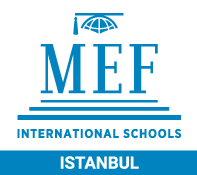Cambridge IGCSE First Language Turkish
In grades 9 & 10 Turkish classes, students continue to develop their ability to communicate fluently and effectively in Turkish in a wide range of situations. Students are also encouraged to read widely, both for their own enjoyment and to further their awareness of the ways in which Turkish can be used. Students apply more general analysis and communication skills such as inference, and the ability to order facts and present opinions effectively. Students take either IGCSE First Language Turkish or Modern Foreign Language.
The aims of Cambridge IGCSE First Language Turkish are to:
- Understand and respond to what is heard, read, and experienced
- Communicate accurately, appropriately, confidently, and effectively
- Enjoy and appreciate a variety of language
- Complement the ability to work with information and ideas in other areas of study
- Develop skills of analysis, synthesis and the drawing of inferences
- Promote personal development and an understanding of themselves and others
Students are assessed both internally and externally at the end of grade 10 through coursework and an external Cambridge IGCSE exam for First Language Turkish.
IB Diploma Programme
Turkish A: Literature (SL, HL) – compulsory for Turkish citizens
Self-Study A: Literature (SL) – in student’s mother tongue
This literature-based course enables students to study their first language through novels, short-stories, poems, and through other literary genres. The course’s aim is to develop an appreciation of literature; written and oral skills in literary criticism; the literary heritage of the first language being studied; and of international perspectives.
The range of texts investigated in the Language A course is broad, and pupils endeavour to appreciate their own language complexity, richness, and nuances in a variety of contexts. The course specifically aims to cause a lifelong interest in and love of literature. Because of the international scope of the IB, not only do students study authors who originally wrote in the language being studied but also authors who have been translated into the language studied. This allows students a broadened international perspective on human experience.
In grades 11 and 12 Language A classes, students may choose one of the IB Language A: Literature courses offered in place of English A: Language & Literature.
- Turkish A: Literature (SL, HL) – compulsory for Turkish citizens
- Self-Study A: Literature (SL) – in student’s mother tongue
This literature-based course enables students to study their first language through novels, short-stories, poems, and through other literary genres. The course’s aim is to develop an appreciation of literature; written and oral skills in literary criticism; the literary heritage of the first language being studied; and of international perspectives.
The range of texts investigated in the Language A course is broad, and pupils endeavour to appreciate their own language complexity, richness, and nuances in a variety of contexts. The course specifically aims to cause a lifelong interest in and love of literature. Because of the international scope of the IB, not only do students study authors who originally wrote in the language being studied but also authors who have been translated into the language studied. This allows students a broadened international perspective on human experience.
The aims of IB Language A course are to:
- Introduce students to a range of texts from different periods, styles, and genres
- Develop in students the ability to engage in close, detailed analysis of individual texts and make relevant connections
- Enhance the students’ powers of expression, both in oral and written communication
- Encourage students to recognize the importance of the contexts in which texts are written and received
- Broaden, through the study of texts, an appreciation of the different perspectives of people from other cultures, and how these perspectives construct meaning
- Encourage students to appreciate the formal, stylistic and aesthetic qualities of texts
- Promote in students an enjoyment of, and lifelong interest in, language and literature
- Develop in students an understanding of how language, culture and context determine the ways in which meaning is constructed in texts
- Encourage students to think critically about the different interactions between text, audience, and purpose
- Develop in students an understanding of the techniques involved in literary criticism
- Expand students’ abilities to form independent literary judgments and to support those ideas.
Students are assessed both internally and externally at the end of Grade 12 through IB examinations. The internally assessed components are also externally moderated by IB.



